In 2021, I created my own creative career in hiking and ditched my clinical role as a physical therapist. It’s been a dream come true and I want to share with you some of the realities and paths you could take to create your own career in hiking.

| Author’s TL;DR for Careers in Hiking
While you can make it rain with a career in hiking, it’s a path more suited to authentic passion and not just to make a buck. The top 5 categories of careers to make money hiking include: Experience Provider, Experience Curator, PickAxe Support, Educator or Non-Profit and Government Projects. Forging a career in hiking has limitless possibilities and paths to discovery and freedom.
What You Will Learn
- 5 Way to Build a Career in Hiking
- Become a European Adventure Travel Insider in Just 5 minutes
- Overview of Hiking Careers
- Professional Trail Opportunities
- Guiding and Education
- Creative and Communication Careers
- Industry Support Roles
- Preparation and Qualifications
- Employment Considerations
- Hiking as a Lifestyle
- Frequently Asked Questions
5 Way to Build a Career in Hiking
Hiking careers offer you a chance to blend your passion for the outdoors with a steady profession.
5 Types of Hiking Jobs
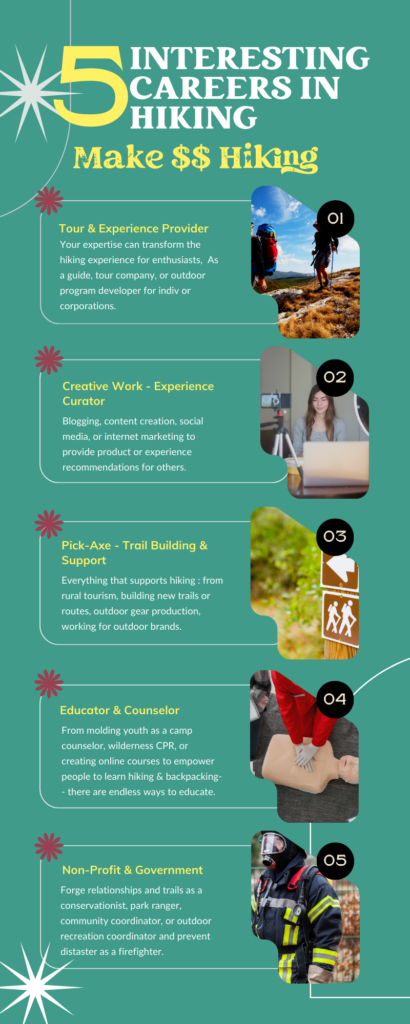
While there are other ways, these are the 5 most common and profitable ways to make a career in hiking and the lifestyle.
Most often, these roles will overlap in some ways and be interconnected just like Mother Nature intended.
Become a European Adventure Travel Insider in Just 5 minutes
✨Unlock Europe’s best-kept secrets with our free bi-weekly newsletter.
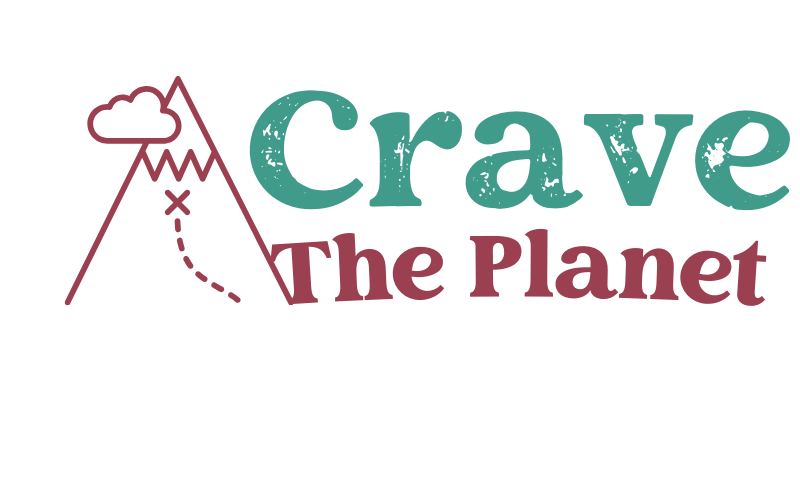
Experience Provider
Your options include roles like trail guides, vacation planners, and expedition leaders.
As an Outdoor Guide, your role is to expertly navigate and lead groups through wilderness areas. This career demands not only a comprehensive understanding of the terrain but also the capability to assess and manage risks.
Hiking Tour Planner, Tour Guide
Mountain tour leaders can help others with demanding mountain climbing all the way to walking with seniors on multi-day hikes like the Tour du Mont Blanc or Alta Via 1.
Here’s a list of Tour du Mont Blanc Hike planners who’ve built small businesses guiding touristic hikes.
Experience Curator
You can even delve into creative work with blogging, internet marketing, photography, and other forms of content creation surrounding the Outdoors.
Blogger, Influencer
You go on the hikes and then write or make video reports of the experience so others can decide if it’s for them. You may monetize this with advertising, sponsorships or affiliate relationships for useful things that support hikers.
“Pick Axe” or Support
Also, those jobs that are the “pickaxe” to hiking include things like owning a mountain hut, transporting hikers on long-distance trails or developing gear and food suitable for foot-based travel.
Often these roles are working within the Outdoor Gear and Supplies space at places like Black Diamond or REI or at seasonal accommodations and restaurants.
In the most literal sense, trail builders are responsible for the upkeep and restoration of trails, ensuring that paths are safe and accessible for hikers.
Educator or Counselor
In the realm of hiking, building a career revolves around profound knowledge of the outdoors and the ability to facilitate and educate others. Your expertise can transform the hiking experience for enthusiasts, from weekend trekkers to seasoned thru-hikers.
As a camp counselor you can help youth build an appreciation for Nature.
As an online course creator you can empower BIPOC or other disempowered people with skills and confidence to get out into Nature safely.
If you have skills in physical training, our growing population of Boomers demands a more physical retirement and you can build workouts aimed for hiking.
Wilderness CPR and first aid instructors provide safety and security for others wanting to explore the Great Outdoors.
Non-Profit & Government
As a park ranger, you are both a protector of natural resources and an ambassador to visitors. Your duties often include conducting educational programs, enforcing park rules, and assisting in search and rescue operations.
As a firefighter you protect our most precious resources against the changing climate.
Working with Americorps or other large programs you can actually change the landscapes for the better.
Overview of Hiking Careers
Each of these positions requires a solid knowledge of hiking, a commitment to safety, and a deep appreciation for nature.
Working with an Outdoor Industry Employer
When aligning with an outdoor industry employer, you’re not just taking on a job; you’re becoming part of a community that values the natural environment. Outdoor gear companies and recreational services are on the lookout for individuals with expertise in hiking to take on roles in product development, customer service, and operational management.
Qualifications and Training
A career in hiking often starts with a love for trekking and a deep-seated desire to be outdoors. However, formal qualifications like wilderness first aid certification, basic CPR, guiding licenses, and even degrees in outdoor recreation can enhance your prospects.
Job Prospects and Opportunities
- Trail maintenance ensures the accessibility and safety of hiking paths.
- Wildlife management involves monitoring the ecosystems within hiking territories.
- Park ranger positions serve as stewards of public lands and often require law enforcement skills.
Boldly step into a career where every trail leads to new discoveries. Remember, while formal education can be a plus, your personal experience, dedication to environmental stewardship, and ability to connect with people can also pave your career path in the hiking industry.
Professional Trail Opportunities
Exploring a career in the great outdoors offers you the chance to combine your passion for nature with a fulfilling profession. National parks and wilderness areas provide a variety of roles, from trail maintenance to education and conservation.
Park Ranger
As a park ranger, you are both a protector of natural resources and an ambassador to visitors. Your duties often include conducting educational programs, enforcing park rules, and assisting in search and rescue operations. Working as a park ranger requires a balance of customer service skills and a deep understanding of environmental conservation.
Trail Worker or Trail Builder
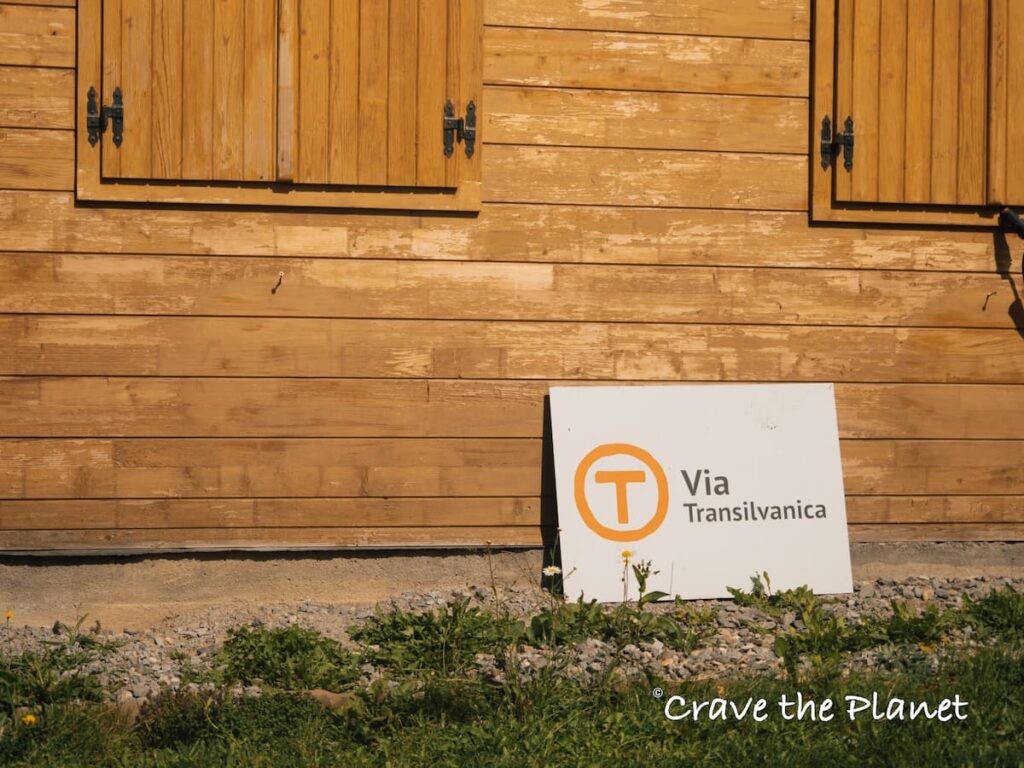
If you’re passionate about maintaining the great outdoors, consider a job as a trail worker. You are responsible for the upkeep and restoration of trails, ensuring that paths are safe and accessible for hikers. This role typically involves physical labor and may require technical skills, such as operating machinery or using hand tools for trail construction and repair.
In 2022, the crew from Tasuleaca Social spent 5 years building the Via Transilvanica 1400 km across Romania. They have built a cult-like following and have a busy, but rewarding job helping hikers from around the world discover rural Romania’s hidden gems.
Firefighter
Wildland firefighters play a critical role in protecting natural landscapes from wildfires. Your bravery and physical endurance are crucial as you work to control and extinguish fires in challenging environments. This career demands extensive training, and on-the-job safety is of utmost importance.
Camp Counselor
As a camp counselor, you have the opportunity to inspire young individuals through outdoor education and recreation. You’ll lead activities, foster a safe and supportive environment, and help develop campers’ appreciation for nature. Camp counselors often work in a variety of settings, including summer camps and educational programs within national parks.
Guiding and Education
In the realm of hiking, building a career revolves around profound knowledge of the outdoors and the ability to facilitate and educate others. Your expertise can transform the hiking experience for enthusiasts, from weekend trekkers to seasoned thru-hikers.
Outdoor Guide
As an Outdoor Guide, your role is to expertly navigate and lead groups through wilderness areas. This career demands not only a comprehensive understanding of the terrain but also the capability to assess and manage risks. Formal qualifications often involve college or specialty schooling in fields like environmental science, but hands-on experience and certifications from reputable organizations are invaluable.
- Qualifications:
- Wilderness First Responder (WFR) or Wilderness Emergency Medical Technician (EMT)
- Regional guiding licenses or certifications, if applicable
- Proficiency in navigation, first aid, and emergency response
Adventure Educator
Your job as an Adventure Educator combines teaching with the thrill of outdoor activities. This role requires a deep commitment to educating individuals of differing skill levels and fostering a safe learning environment. The curriculum you teach often goes beyond hiking, including subjects like environmental ethics and survival skills.
- Components of Adventure Education:
- Curriculum development
- Experiential teaching methods
- Flexibility in addressing diverse learner needs
Thru-Hiking Instructor
Specializing as a Thru-Hiking Instructor, you guide aspiring thru-hikers through the rigorous preparation and execution of long-distance hikes. To do this effectively, you draw from personal experience, ensuring your pupils are well-versed in the challenges and rewards of becoming a thru-hiker. The ability to customize training for different endurance levels and hiking goals is key.
- Key Aspects:
- Detailed trip planning
- Tailored fitness and nutrition programs
- Equipment selection and usage
Creative and Communication Careers
In the realm of hiking-related professions, your passion for the outdoors can harmoniously blend with your creative and communication skills. These careers allow you to capture the majesty of nature, inspire others with your adventures, or share your hiking expertise through various media.
Outdoor Photographer
As an outdoor photographer, your lens becomes a window to untamed landscapes for those enclosed in urban jungles. By mastering photography techniques and having an eye for the sublime, your work can lead to opportunities in wildlife documentaries, nature magazines, and advertising for outdoor equipment brands. Social media platforms serve as a valuable tool for showcasing your portfolio.
| Essential Skills | Requirements |
|---|---|
| Artistic Vision | Understanding of light and composition |
| Technical Proficiency | Proficient with photography equipment |
| Physical Fitness | Ability to trek to remote locations |
Travel Writer
Your role as a travel writer combines storytelling with informative insights, making destinations come alive for your readers. You will narrate the trails, the climbs, and the breathtaking moments that happen away from civilization. Successful travel writers often contribute to travel guides, blogs, and magazines while also engaging with a following on various online platforms.
- Strong Writing Skills
- Research and Fact-Checking Abilities
- Adaptability to Different Writing Styles
Hiking Blogger (What I do!)
Having a career as a hiking blogger is about more than just narrating your hiking trips. It involves creating engaging content and connecting with your audience through personal anecdotes, trail guides, gear reviews, and safety tips. As a blogger, you will leverage the power of the written word and digital technology to build a platform that resonates with both novice and seasoned hikers alike.
- Consistency: Regularly update your blog with fresh content.
- SEO Knowledge: Optimize your posts for search engines to increase visibility.
- Community Engagement: Interact with your readers and fellow hikers.
Each of these careers allows you to share your experiences and inspire others to explore the great outdoors, while continuously honing your expertise in your chosen field.
Industry Support Roles
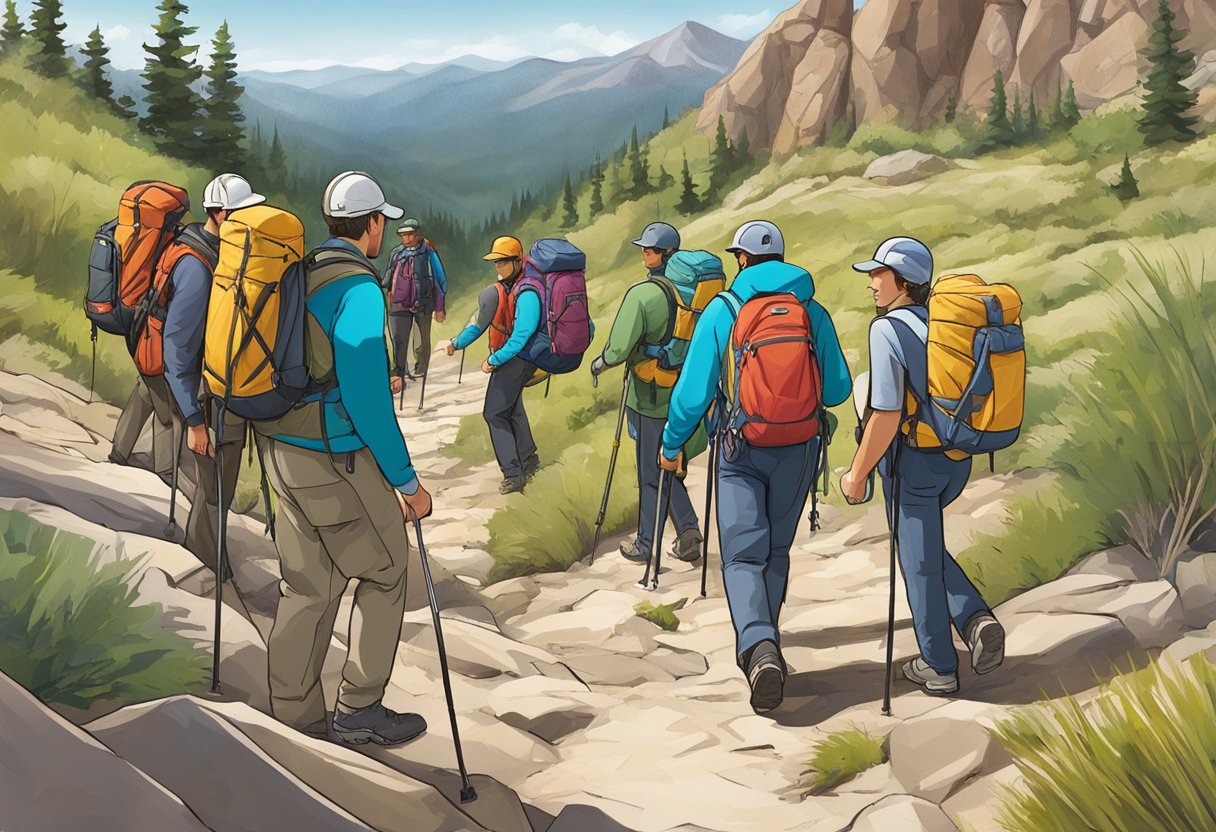
In the realm of hiking-focused careers, you play a vital role in outdoor industry support. Your expertise helps maintain the vibrant community of hikers and conservationists, while also ensuring employers have the top-notch staff they require.
Outdoor Equipment Staff
When you work as part of the Outdoor Equipment Staff, you are the backbone of hiking retailers and manufacturers. Your knowledge equips hikers with the right gear, tailored from beginner to serious leisure aficionados, ensuring safety and comfort on their treks. You’re not just selling a product; you’re providing a service to ensure each community member is prepared for their journey.
Key Responsibilities:
- Assist customers in selecting the appropriate gear.
- Keep up to date on the latest hiking equipment and technology.
Skills:
- In-depth knowledge of hiking gear
- Excellent customer service
Conservation Community Coordinator
As a Conservation Community Coordinator, your job meshes the worlds of hiking and conservation. You forge strong relationships within the community, advocating for sustainable trails and educating both staff and hikers on environmental protection. Your role supports employers and staff in fostering a culture that prioritizes the health of our trails and natural spaces, ensuring they can be enjoyed for generations to come.
Key Responsibilities:
- Coordinate conservation efforts and community volunteer programs.
- Build partnerships with local organizations for conservation initiatives.
Skills:
- Strong community engagement
- Knowledge of conservation practices
Outdoor Program Developer
In your capacity as an Outdoor Program Developer, you create programs that inspire and educate individuals about the outdoors. Your work often involves collaborating with employers to develop training for staff that enhances their ability to lead and instruct. Your well-structured programs also help hikers and conservationists connect with the wilderness in safe, meaningful ways.
Key Responsibilities:
- Design and implement outdoor education and training programs.
- Work with employers to align programs with industry standards.
Skills:
- Program development
- Leadership and instructional competencies
Preparation and Qualifications
Beginning a career in hiking requires a specific skill set, appropriate education and certifications, as well as excellent physical and mental robustness. Your preparation for this path focuses on gaining practical expertise, securing the necessary documentation to prove your proficiency, and ensuring you are in top condition to face the challenges of the outdoors.
Skill Set Development
To succeed in a hiking-related career, you must develop a diverse skill set that includes navigation, risk assessment, emergency response, and environmental ethics. It is vital to hone your abilities to adapt to changing conditions—referred to as flexibility—which is essential in the unpredictable nature of outdoor environments. Enhance your expertise through practice and by seeking tips and advice from seasoned professionals.
Education and Certifications
Your educational background plays a crucial role; consider attending a schooling system that provides specialized outdoor education or a college with a strong emphasis on environmental or recreational studies. Further, validate your expertise with credible certifications such as a Wilderness First Responder or Certified Hiking Guide. Accredited programs and certifications like those offered by AEE accredited organizations can greatly enhance your employability and readiness for the career.
Physical and Mental Preparedness
To excel in a hiking career, maintain top physical preparedness with a regular exercise regime that includes cardio, strength, and flexibility training. Mentally, be ready to tackle the rigor of leading groups, making critical decisions, and staying calm under pressure. This mental preparedness is not just about endurance, but also about resilience and the capacity for critical thinking in the face of adversity.
Employment Considerations
When considering a career in hiking, it’s essential to evaluate the different aspects that impact your employment stability and satisfaction. This includes understanding the available insurance and benefits, adapting to the challenges of seasonal work, and accounting for the impact of pandemics on outdoor employment.
Insurance and Benefits
Your employer is typically responsible for providing some degree of insurance. Verify that your benefits package covers health insurance, especially considering the physical demands of hiking-related employment. Additionally, look for packages offering disability and life insurance. Employer-provided benefits offer a layer of security, contributing to the overall attraction and flexibility of the job.
- Insurance Options:
- Health Insurance
- Disability Insurance
- Life Insurance
Challenges of Seasonal Work
Seasonal work often comes hand-in-hand with hiking careers. Understand that income consistency varies, and it may require you to be flexible with budgeting. Look for employers who offer compensation that reflects the seasonal nature of the work, along with opportunities for alternative employment during the off-season.
- Seasonal Work Considerations:
- Varying Income
- Budget Flexibility
- Off-season Opportunities
Impact of Pandemics on Outdoor Employment
The advent of a pandemic can dramatically alter the landscape of outdoor employment. It’s important that you stay informed about how such events can affect job availability and adjust your career plans accordingly. During pandemics, employment prospects can diminish, so it’s beneficial to seek employers who have a plan to navigate these periods, including remote work options or adjusted operating models.
- Pandemic Impact:
- Job Availability
- Employer Contingency Plans
- Remote Work Options
Hiking as a Lifestyle
Embracing hiking as more than a leisurely activity transforms it into a lifestyle choice that intertwines with your values and community roles. Here you’ll discover how sustainable practices and community engagement are inherent to the hiking ethos.
Sustainable Living Through Hiking
As you embark on trails, the concept of minimalism often becomes not just practical but essential. Your pack is limited to necessities, which teaches you the art of living with less. This transfers to everyday life, leading to a more sustainable lifestyle, emphasizing reduced consumption and eco-friendly choices.
- Leave No Trace: Embrace this code every time you camp, ensuring minimal impact on the environment.
- Gear Choices: Invest in high-quality, eco-conscious gear that stands the test of time and elements.
By adopting these practices, your actions as a thru-hiker encourage a continuous cycle of conservation and mindful living.
Community Involvement and Volunteerism
Hiking doesn’t just connect you with nature; it connects you with people. Community-building happens naturally on the trails. As a hiker, you become part of a network that thrives on mutual support and shared experiences.
- Trail Maintenance: Contribute to the upkeep of your beloved trails. Participate in volunteer groups for activities like trail clearing and repair.
- Hiking Clubs: Joining a local hiking club can embed you deeper into the hiker community, where organizing and participating in group outings becomes a way of sharing knowledge and camaraderie.
Your involvement is pivotal, not just for your personal growth but also for fostering a community that values nature, togetherness, and the spirit of helping one another.
Frequently Asked Questions
When considering a career in hiking, you may have a variety of questions related to qualifications, monetization, and gear. Below are answers to common inquiries that might guide your career path.
What qualifications are necessary to become a hiking instructor?
To become a hiking instructor, you typically need to have certifications in First Aid and CPR, as well as wilderness survival skills. Many instructors also pursue formal training through organizations like the American Hiking Society to enhance their credibility.
How do professional hikers monetize their passion?
Professional hikers often monetize their passion by obtaining sponsorships, creating instructional content, leading guided tours, or writing about their adventures. Some have also been successful with platforms like Patreon or by selling photos and stories of their journeys.
What job opportunities exist for hiking enthusiasts in winter sports?
Hiking enthusiasts can find job opportunities in winter sports such as snowshoe guiding, winter survival training, or working at ski resorts. Expertise in hiking often translates well into these areas, especially where guiding and outdoor skills are concerned.
What skills are essential for a career as a wildland firefighter with a focus on wilderness areas?
A career as a wildland firefighter in wilderness areas requires physical fitness, the ability to work in challenging conditions, and knowledge of fire behavior. Training often includes courses in fire management provided by organizations like the National Wildfire Coordinating Group (NWCG).
Which hiking gear is considered best for those pursuing hiking as a full-time profession?
For full-time hikers, durable and lightweight gear is critical. Look for reputable brands that offer functionality and reliability. Equipment such as all-weather apparel, high-quality backpacks, and GPS devices are commonly recommended.
How do thru-hikers financially sustain their lifestyle?
Thru-hikers sustain their lifestyle by planning and saving in advance, sometimes for years. They often adopt minimalist lifestyles, relying on intermittent work, seasonal jobs, freelance opportunities, or remote work to fund their treks.
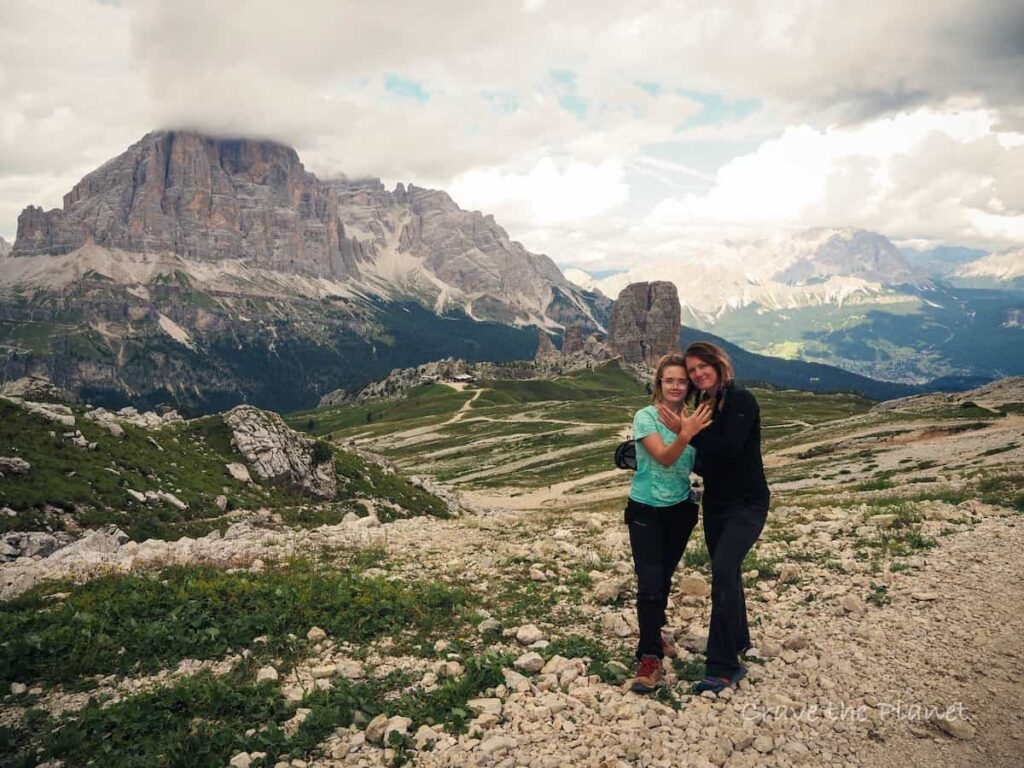
Get ready to step into your next adventure with confidence! Our guide, packed with fun and fascinating tips on careers in hiking is just the thing you need to gear up for a job in the great outdoors. Happy trails and here’s to your future paths in hiking!

Author profile: Morgan Fielder is a Doctor of Physical Therapy and passionate hiker who believes in exploring the world on foot with good food. Follow her journey as she shares science-based hiking tips and advocates for sustainable tourism.
